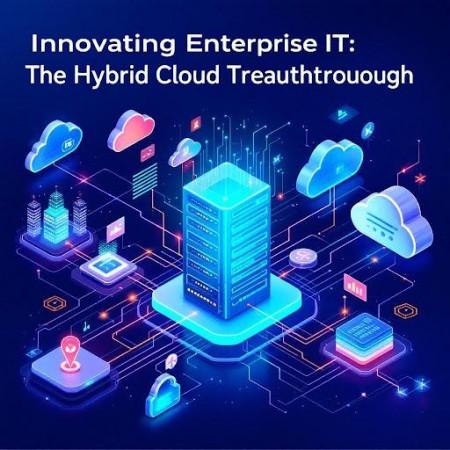
The evolution of enterprise IT has led to demand for scalable, secure, and cost-effective infrastructure solutions. Bridging the gap between on-premises data centers and cloud platforms, hybrid cloud solutions are transforming how businesses operate. Uday Kiran Yedluri, an expert in hybrid cloud strategies, explores one groundbreaking innovation in his research on Azure VMware Solution (AVS). This article delves into innovations highlighted in his work, revealing how enterprises can integrate cloud capabilities while maintaining operational consistency.
Seamless Migration Without Disruption
One of the most remarkable aspects of AVS is its ability to facilitate a seamless transition from traditional on-premises VMware environments to the cloud. Enterprises often struggle with costly and complex migrations, but AVS eliminates these barriers by allowing organizations to move workloads without refactoring applications. The solution maintains compatibility with existing VMware tools, processes, and policies, ensuring minimal downtime. This means businesses can migrate critical applications to the cloud while continuing daily operations with no major disruptions.
Optimized Performance with Dedicated Cloud Infrastructure
AVS provides dedicated, high-performance infrastructure optimized for enterprise workloads. Each deployment consists of robust bare-metal servers that deliver substantial computing power, ensuring consistent performance for demanding applications. With features such as vSphere clusters, vSAN for storage, and NSX-T for advanced networking, enterprises gain a software-defined data center within the cloud. This architecture enhances resource efficiency while maintaining predictable performance levels.
Cost-Efficient Cloud Adoption
Cost optimization is a key driver for enterprises exploring hybrid cloud solutions. AVS reduces operational expenses by eliminating the need for hardware refresh cycles and data center maintenance. Organizations can leverage cost-saving mechanisms like Azure Reserved Instances and the Azure Hybrid Benefit, which offer significant discounts for long-term commitments and software license reuse. By optimizing workloads and scaling resources dynamically, businesses achieve substantial cost reductions without compromising performance.
Advanced Security and Compliance Measures
Security remains a top priority in hybrid cloud environments. AVS integrates comprehensive security frameworks, ensuring data protection, identity management, and compliance with industry regulations. It enables multi-layered security with features such as Azure Active Directory integration, micro-segmentation through NSX-T, and encryption for data at rest and in transit. By aligning with global compliance standards, AVS provides enterprises with a secure foundation for cloud adoption.
Flexible Networking and Connectivity
Network connectivity is a crucial factor in hybrid cloud deployments, and AVS offers multiple options to ensure seamless communication between on-premises and cloud environments. The solution supports ExpressRoute, a dedicated private connection that enhances security and reduces latency. Additionally, AVS integrates with Azure's global infrastructure, allowing enterprises to deploy workloads closer to end-users for improved performance.
Operational Agility and Automation
The shift to hybrid cloud is not just about infrastructure it also transforms enterprise operations. AVS automates key IT processes, reducing manual intervention and improving operational efficiency. IT teams can utilize familiar VMware management tools while leveraging Azure's automation capabilities to optimize workload deployment, monitoring, and scaling. This enables enterprises to shift focus from infrastructure management to innovation-driven initiatives.
Future-Proofing IT with Hybrid Cloud Strategies
The hybrid cloud landscape is continuously evolving, and AVS positions enterprises for long-term success by providing a scalable and flexible IT foundation. As cloud-native technologies advance, organizations using AVS can gradually adopt containerized applications, serverless computing, and artificial intelligence-driven analytics without major overhauls. This strategic approach ensures businesses remain competitive in an increasingly digital world.
In conclusion, the integration of AVS into enterprise IT strategies is a game-changer, offering seamless migration, cost efficiencies, robust security, and operational agility. By maintaining VMware consistency while unlocking cloud benefits, businesses can confidently modernize their infrastructure. As Uday Kiran Yedluri's research highlights, hybrid cloud solutions like AVS pave the way for enterprises to embrace innovation while ensuring stability and scalability for the future.








